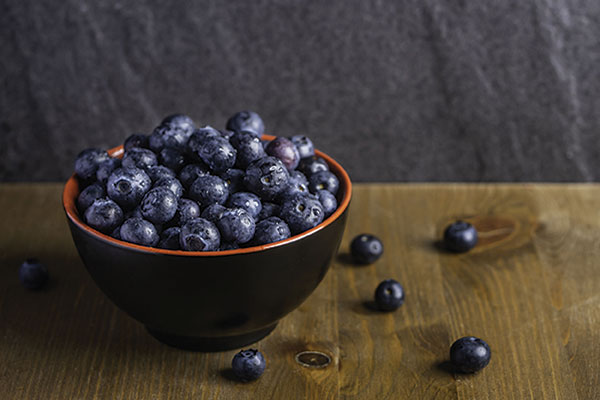Take Charge of Your Gut Health
by Marie Morande, RD, CSO, LD
You have the ability to change your gut health.
What does this mean? Our gastro-intestinal tract, or digestive tract, is the home of trillions of gut bacteria living in harmony with our bodies. These gut bacteria, or our microbiome, help us by producing vitamins, synthesizing amino acids, metabolizing nondigestible carbohydrates, supporting our immune system, and fighting pathogens. As with all living things, these gut microbiota need proper nourishment.
Proper nourishment leads to a diverse gut microbiome. Diversity is a reflection of not just the number of bacteria but, more importantly, the different types of bacteria. Microbiome diversity boosts the immune system and lowers a person’s risk of heart disease, obesity, and digestive diseases. More importantly, a diverse gut microbiome has been shown to enhance the effectiveness of some cancer treatments.
How do you nourish your gut?
Proper nourishment involves supporting microbiome growth by eating an anti-inflammatory diet, staying hydrated, and getting a little sun exposure. An anti-inflammatory diet is a way of eating that prioritizes filling up on vegetables, fruits, beans, nuts, whole grains, lean protein, fish, and avocado, while limiting your consumption of red meat and dairy. The goal of an anti-inflammatory diet is to eat mostly colorful fruits and vegetables, like greens, beets, broccoli, blueberries, pineapple, sweet potato, butternut squash, apricot, cherries, kale, artichokes, and tomatoes. These foods are high in prebiotics, or plant fibers, that fuel the best strains of gut bacteria. In addition, replacing saturated fats and trans fats from processed foods with fish, flaxseed, nuts, olives, and olive oils will also support good microbiome diversity.
Another way to support the growth and diversity of your gut microbiome is by enjoying short periods of sun exposure. Safe exposure to the sun produces vitamin D, which along with its benefits to bone health, also supports gut health. Low vitamin D levels have been linked to poor gut diversity. If sun exposure is not an option for you, taking a vitamin D supplement is a suitable alternative.
An anti-inflammatory diet is a way of eating that prioritizes filling up on vegetables, fruits, beans, nuts, whole grains, lean protein, fish, and avocado, while limiting your consumption of red meat and dairy.
Along with supporting microbiome growth, we can eat fermented foods to help diversify our gut bacteria. Many people know about the benefits of taking probiotic supplements. However, most probiotics have only a few strains of helpful bacteria, when we know there are hundreds of strains that are good for our gut. That’s why eating fermented foods is sometimes a better choice than taking probiotics. For example, kombucha (which is a fermented tea) can have up to 50 different strains. Other good fermented foods include yogurt, kefir, sauerkraut, kimchi, tempeh, and miso.
Furthermore, it’s best to avoid foods that may disrupt microbiome diversity. Artificial sweeteners, food additives, emulsifiers, added sugars, chemicals, and highly restrictive diets are known to reduce gut diversity and increase inflammation in the whole body.
Can your gut help you fight cancer?
We have compelling evidence that suggests the gut microbiome helps shape the immune system. Earlier, we discussed eating an anti-inflammatory diet to help support microbiome diversity. Inflammation has been associated with cancer risk. The same anti-inflammatory diet recommendations that help nourish gut bacteria are also encouraged for cancer survivors. In addition to supporting a healthy gut, a good diet may reduce cancer risk by supplying your body with vitamins, minerals, and plant-based nutrients that may reduce inflammation, detox the body, and help fight tumor growth.
What is exciting is that a new study presented at the 2019 American Association for Cancer Research annual meeting showed that people with the most microbiome diversity while being treated with immunotherapy drugs had the best response to the drug. Since it is not clear what composition of bacteria is optimal for this positive response to cancer therapy, diversity is key. And, this isn’t the only study to suggest such gut-related benefits to cancer survivors.
While more studies are needed to examine just how gut bacteria might affect cancer treatment, there is certainly no harm (and, in fact, many benefits) in eating a more gut-healthy diet. So, on your next trip to the grocery store, load up on high-fiber foods, fermented foods, and fresh whole foods to nourish your gut microbiome and improve your overall health.

Marie Morande is a certified specialist in oncology nutrition at Boca Raton Regional Hospital’s Lynn Cancer Institute, part of Baptist Heath South Florida, in Boca Raton, FL. She has 21 years’ experience as a clinical dietitian and is a member of the Oncology Nutrition Dietetic Practice Group of the Academy of Nutrition and Dietetics.
This article was published in Coping® with Cancer magazine, May/June 2020.


